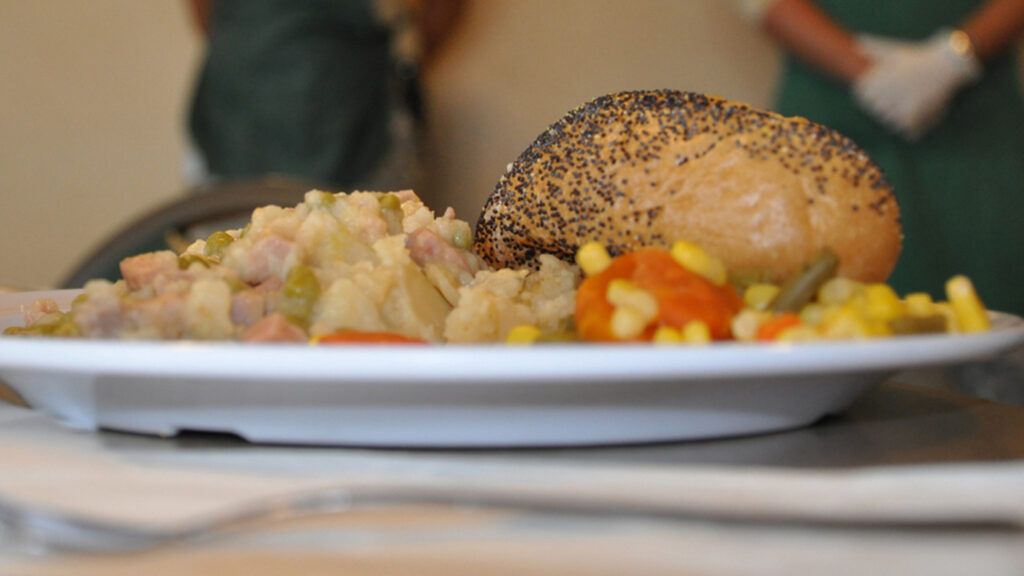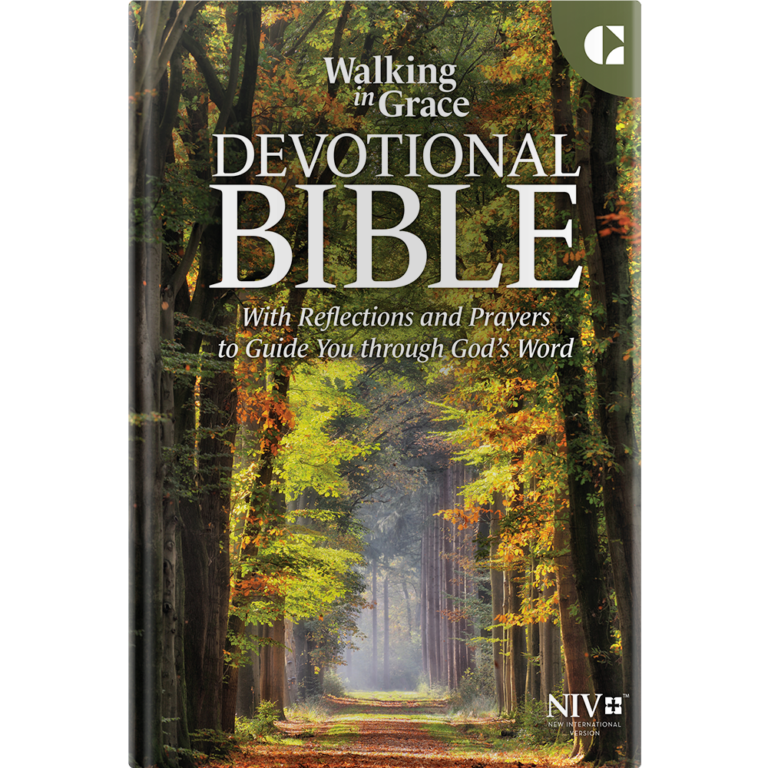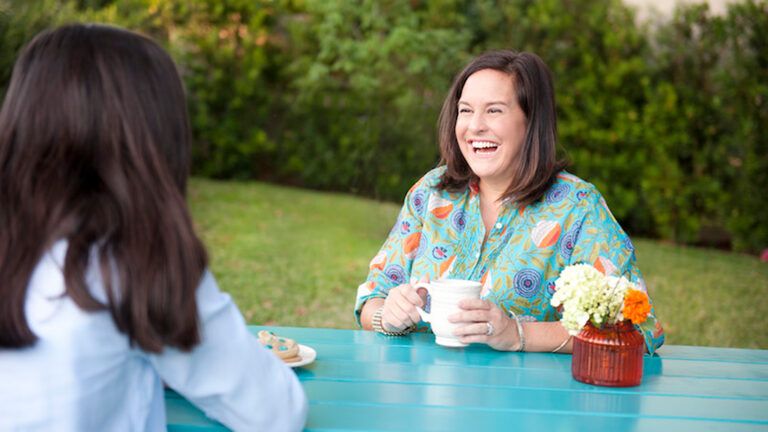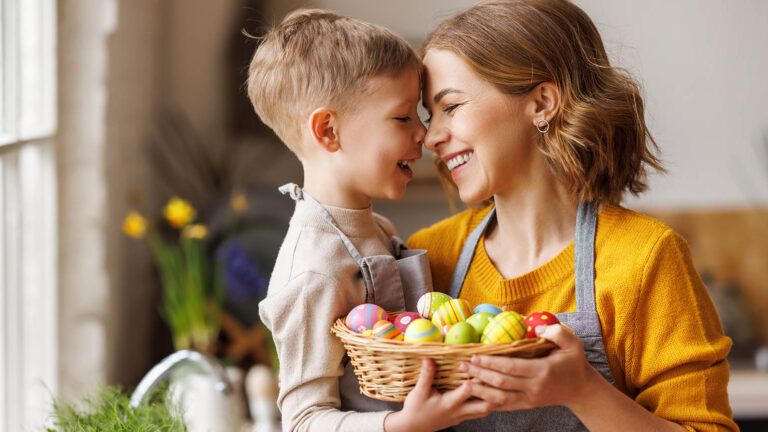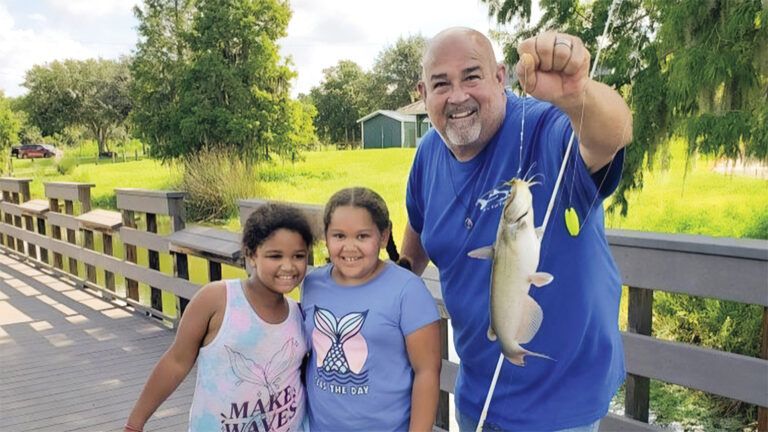This seemed more like April Fools Day than Thanksgiving—I was right in the middle of the kind of bizarre mix-up that could only happen to me.
Just a few hours earlier I had been pretty smug about my Thanksgiving plans. Originally I had had nowhere to spend Thanksgiving—my family was 3000 miles away and I hadn’t made any friends yet here in San Francisco—but then I had my bright idea.
A quick phone call to a downtown soup kitchen, and suddenly I had something important and useful to do. More than useful—noble.
ENJOYING THIS STORY? SUBSCRIBE TO GUIDEPOSTS MAGAZINE
When a coworker extended an invitation for me to dine with her family, I didn’t succeed at keeping smugness out of my voice as I said, “No, I decided to do something useful this year.” After I explained, she seemed impressed. As she should, I thought. I was pretty impressed myself.
I awoke at six o’clock on Thanksgiving morning, eager to get to the city. I didn’t envy the families I rode on the train with, who were chatting and admiring one another’s color-coordinated outfits. One day I would have friends here too, but this year my jeans and T-shirt were appropriate. After all, I was on my way to do good work, not enjoy a party.
When I arrived at the shelter, I wasn’t surprised by all the people lined up. Year after year, safe in the cozy confines of my family’s living room, I had seen the pictures on the TV news: hordes of people at long tables, squalling children, toothless old men. I looked around to see where I was supposed to go.
In the alley scores of people were standing in clusters under an oak tag sign reading, “Volunteers Pls. Wait Here.” I made my way over, alongside other volunteers, surprised so many were willing to do a good turn.
Apparently the man holding the clipboard was surprised too, for he stumbled over his words as he said, “I’m Ed. Er, folks…this has never happened before, but we have way too many volunteers. We usually never get the fifty we need, so we had all the radio stations mention it this year. Now we have two hundred, and no place to put you all, even in double shifts.”
He grinned. “Just to remind you, we could sorely use your help the rest of the year.” Then Ed added, “But today you good people get a reprieve. So we would like to thank you all for coming and wish you a happy Thanksgiving. God bless you.”
A surprised murmur ran through the crowd. Everyone besides me seemed delighted to be able to leave. “That’s great news,” the red-cheeked man in front of me said to his pal. “Now I can go over to my sister’s. Vicki’s always claiming she doesn’t see enough of me.”
A woman was thrilled to be going to her cousin’s. “Sarah told me to drop in any time. The kids’ll be tickled by my surprise visit.”
My stomach felt hollow as I realized I didn’t know anyone in town well enough to show up at the last minute saying, “Here I am after all!”
Just then Ed called out, “All you volunteers are welcome to join us for lunch, of course.”
I shuddered as the others left. Obviously he had meant it as a joke, but to me it wasn’t funny. The only contact I had ever had with homeless people was when I had occasionally—and gingerly—handed one a quarter on the street. And I had no desire to deal with them without that plastic barrier—the one that separated me and the food from them—between us.
But when I finally turned to leave, I couldn’t. I had waited too long. When Ed opened the gates, people swarmed in through the narrow corridor. The line surged forward and turned into a crowd, with me somehow in the midst of it. I was carried inside. “I don’t belong here,” I cried out to the burly man behind me.
He shrugged. “Who does?”
“No,” I insisted. “I’ve got to get out.” But all I succeeded in doing was moving back about a dozen feet. The line just kept on coming, taking up every available inch in that corridor. Eventually, I was swept up to the counter where the food was being served.
“I’m a volunteer too,” I said as I accepted two slices of turkey from the woman behind the Plexiglas partition separating me from the food. “I mean, I don’t belong on this line. They had too many of us.”
She merely dumped a dollop of sweet potatoes and a tiny pleated cup of cranberry jelly on my paper plate. “Happy Thanksgiving. Next!” she barked. I moved along.
“I’m a volunteer too,” I told the man behind the counter as he handed me a plastic cup of apple juice and a corn muffin.
“Happy Thanksgiving and God bless you, darling,” he said.
Defeated, I slowly made my way toward a long aluminum table covered with a thin paper tablecloth. I settled into one of the empty seats, too tired and discouraged to leave but not wanting to have any of these people get too close.
A man sat down opposite me. He stuck out his hand and shook mine. “I’m Fred,” he told me. “I’m an alcoholic,” he added, going on to say that he was now “on the road back.”
“That’s nice,” I said. “I was supposed to volunteer here.”
“Oh.” His face fell and he turned to the man next to him.
A pregnant woman, somehow managing to hold a toddler as well as two plates of food, slid into the end seat and smiled at me warmly. “It’s nice to sit down,” she said. “You know how it is—this is the first time I’ve been able to eat in peace in days!”
“I’ll feed your son,” I offered.
“Oh, would you? That’s so kind.”
“Well, actually, I’m a volunteer. It’s kind of my job…”
“Oh.” Her face clouded, and she ate quietly, not saying anything else.
The only other people at the table were a father and son—a man in a tank top with a rip in the side, along with a boy with a blond cowlick and a missing front tooth. They bowed their heads briefly and I averted my eyes. I watched them as I picked at my crumbling corn muffin. The turkey was dry, and the room smelled terrible—like my junior high lunchroom.
I heard the boy say, “Daddy! Mmmm! I like this food!”
The father smiled at his son’s exuberance. “Don’t eat too fast, son.” He turned toward me and said in explanation, “It’s been a while since I could afford to give them a good meal like this one. You know?”
“I’m a volunteer,” I said quickly.
The father’s face went bright red, and there was an awkwardness in the air. Unaware of it, the boy chimed in helpfully, “We got a volunteer in our class at school. She sits right down at our table with us. You know, she teaches us better than our teacher—’cause she’s right at the same table,” he repeated, “not way up in front of the room.”
He smiled, then jabbed his plastic fork into the sweet potatoes and ate them with gusto.
I stared at the boy, amazed that he had put his finger right on the heart of the matter. I had been so busy looking for differences between me and everyone else that I was acting as if they were a separate species! But were they so different? Hadn’t I had bad relationships? Hadn’t I had job problems? Didn’t I have friends who were recovering alcoholics?
And what about my 20-year-old niece, who was already the parent of a toddler and an infant? Was this woman in the shelter less worthy just because she didn’t live in a suburban home? Thoughtfully I finished the corn muffin.
By the time I left, I had spoken with Fred, Dave and Ella (my table mates), along with Donald and Fredda (the children). By then the crowd had thinned considerably, and I was able to make my way through the hall easily.
Once outside, I blinked in the bright sun—then cringed when I saw a TV newscaster poking his microphone in the faces of several of the people on line. What do they think these people are—animals in a zoo?
I stopped dead in my tracks then, having to smile at my own indignation. I had been feeling superior too, believing I was better than the people I was volunteering to help. Then I had been thrust into this odd situation of having lunch with them—only to discover we weren’t so different after all!
The only barrier separating us had been one I had erected myself—my unwillingness to see these people as what they were: people.
That was when, caught deep in thought, I bumped directly into one of the newspaper reporters! Holding a pen over his notepad, the man asked me: “How was your meal?”
I considered the question, then surprised myself with my answer. “The food was a traditional Thanksgiving dinner,” I said, “but the best part of the meal was talking to the really nice people I shared it with.”
Did you enjoy this story? Subscribe to Guideposts magazine.
